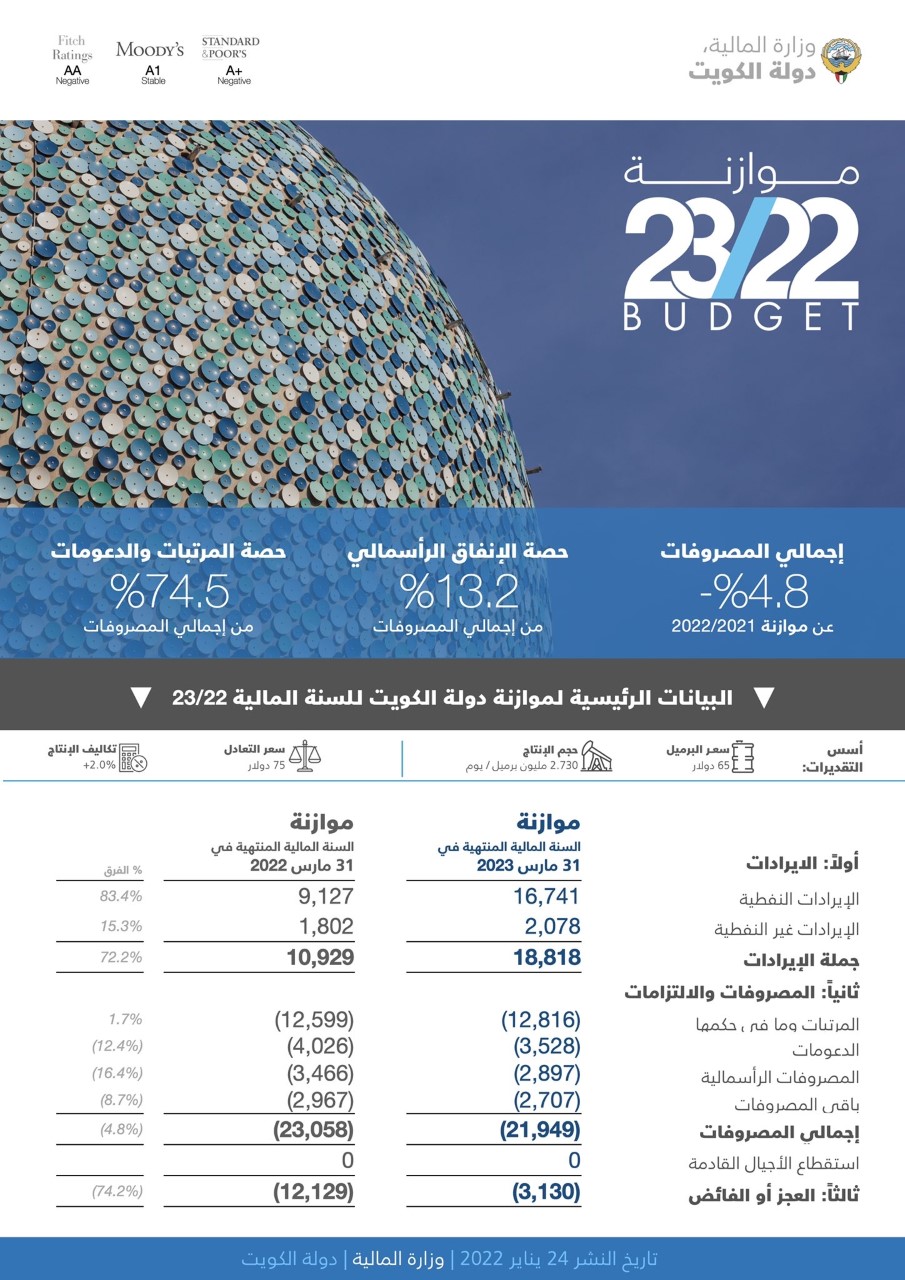Kuwait's fiscal deficit for the first ten months of the current fiscal year has witnessed a significant narrowing compared to the same period last year. According to the latest figures released by the Ministry of Finance, the deficit stands at $3.59 billion, a substantial improvement from the $7.8 billion recorded during the corresponding period in 2022. This represents a more than 50% reduction in the deficit, indicating a positive development for the country's public finances.
The improvement in Kuwait's fiscal position can be attributed to several factors. One major contributor is the rise in global oil prices. Kuwait, a major oil producer, benefits significantly from a strong oil market as it generates a large portion of its government revenue from hydrocarbon exports. The increase in oil prices has led to a boost in government income, helping to bridge the gap between revenue and expenditure.
Another factor contributing to the reduced deficit is the Kuwaiti government's implementation of austerity measures. In response to the economic challenges posed by the COVID-19 pandemic, the government introduced a series of spending cuts aimed at curbing unnecessary expenditures. These measures, while not always popular, have helped to streamline government spending and reduce overall costs.
While the improvement in Kuwait's fiscal deficit is a positive development, there are still challenges that need to be addressed. The global economic outlook remains uncertain, and oil prices can fluctuate significantly. Kuwait needs to focus on economic diversification to reduce its dependence on oil revenue and ensure long-term financial stability.
Furthermore, the Kuwaiti government must continue to implement prudent fiscal policies to manage its spending effectively. While austerity measures have played a role in reducing the deficit, it is crucial to strike a balance between fiscal consolidation and promoting economic growth. The government should prioritize investments in key sectors such as education, infrastructure, and healthcare to stimulate economic activity and create jobs.
Kuwait's fiscal deficit has shown a marked improvement in the first ten months of the current fiscal year. This positive development is due to a combination of factors, including rising oil prices and government austerity measures. However, Kuwait must address its dependence on oil revenue and continue implementing sound fiscal policies to ensure long-term economic sustainability.

